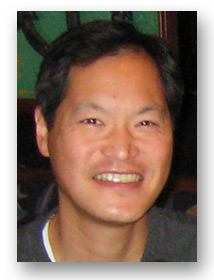Russell Jeung analyzes the Asian American vote
As the nation's fastest-growing immigrant group, Asian Americans are likely to be a key constituency in the 2012 presidential election, but this community is far from a monolithic voting bloc, says Associate Professor of Asian American Studies Russell Jeung.

Associate Professor of Asian American Studies Russell Jeung
Jeung recently published an analysis of Asian American voting patterns in the 2008 presidential election, including a breakdown of nine ethnic groups and 11 religious affiliations that make up the Asian American vote.
"Usually people act in a racial bloc or a religious bloc," Jeung said. "They have a sense of a shared fate and identity that affects how they vote. For Asian Americans, it's more complicated as they have more cross-cutting affiliations than most Americans."
While other ethnic groups in the U.S. may be guided by a shared religion, Asian Americans don't have a common faith and 27 percent don't follow any religion. The community's diversity, Jeung says, makes it difficult for Asian Americans to mobilize as a united group and their lack of partisanship may also contribute to low levels of voting among this demographic.
"There's this puzzle of why Asian Americans are less politically involved despite their high levels of education and income," said Jeung, whose analysis was published as a chapter in the book "Religion, Race, and Barack Obama's New Democratic Pluralism."
Jeung says that many Asian Americans feel disenfranchised, which has had a chilling effect on their involvement in politics. Meanwhile, political parties have not invested much time or money in targeted outreach to these voters.
"Asian Americans' diverse backgrounds may also explain their low levels of voting," Jeung said. "Some have come from non-democratic societies and haven't grown up with the idea of political participation," Jeung said. "Others are recent immigrants and aren't eligible to vote."
While Asian Americans were more likely to support Barack Obama in the 2008 presidential election compared to caucasian voters with similar incomes and religious affiliations, there were differences in the voting patterns of Asian American subgroups.
Jeung's analysis found that Asian Americans who are agnostic, atheist, Hindu and Muslim were more likely to hold liberal political views and were more likely to vote for Obama. Protestants and Catholics who were more likely to hold politically conservative views also supported Obama. Vietnamese Americans, many of whom are Catholic, were more likely to vote for John McCain.
With large Asian American populations clustered in swing states such as Virginia, Nevada and Florida, Jeung believes this demographic will becoming a growing force in American politics, and it's not just the size of the population that matters.
"Time in the U.S. makes a big difference," Jeung says. "As Asian Americans become more established in the U.S., I think we'll start to see them forming a stronger pan-ethnic identity. Individuals will start to see that what happens to one Asian American happens to another, and they will start to come together over shared concerns and values."